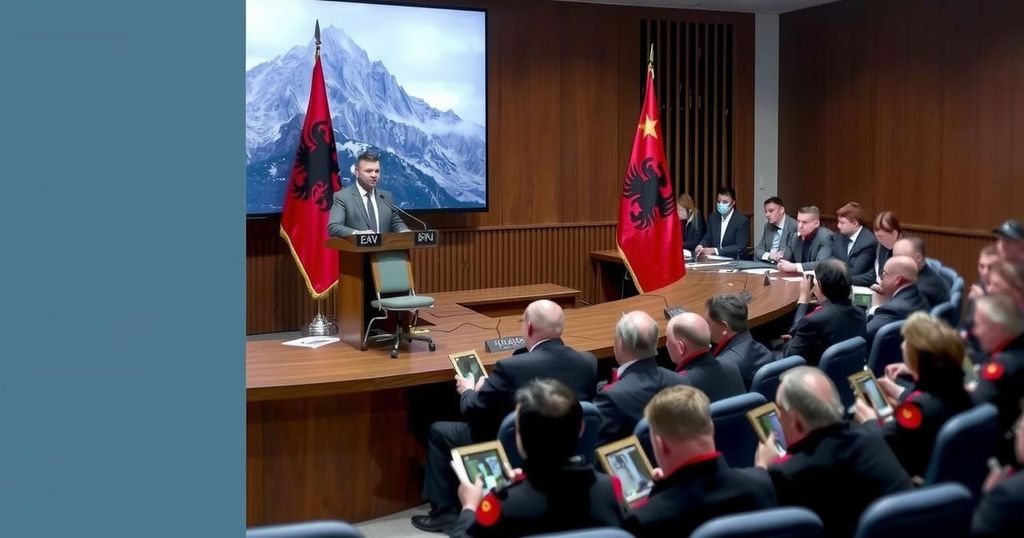At COP29 in Baku, Albania’s PM Edi Rama criticized the summit’s effectiveness in combatting climate change, expressing skepticism over the commitment of major polluters. The conference highlighted the urgent need for financial support for vulnerable nations and the serious implications of rising emissions, underscoring the necessity for genuine action beyond mere rhetoric.
During COP29 in Baku, Albania’s Prime Minister, Edi Rama, criticized the efficacy of the summit, questioning its purpose if major polluters maintain their current practices. He remarked, “People there eat, drink, meet and take photos together – while images of voiceless leaders play… Life goes on, with its old habits, and our speeches… change nothing.” Rama pointed to a concerning increase in carbon emissions since the last conference and emphasized the need for genuine political will for meaningful climate action. The summit also witnessed leaders emphasizing climate justice and the urgent need for financial commitments to combat climate change. United Nations Secretary-General Antonio Guterres expressed solidarity with vulnerable island nations, asserting that they deserve support in their direct battle against rising seas and climate impacts. Other leaders, such as Pakistan’s Prime Minister Shehbaz Sharif, called for grants instead of loans to avoid further crippling debt for developing nations. Meanwhile, the Marshall Islands’ president urged negotiators to enhance financial projections and align mitigation efforts with a target limit of temperature rise to 1.5 degrees Celsius. Overall, the conference encountered stark realities highlighted in the Global Carbon Budget report revealing an increase in emissions, calling into question the genuine progress made in international negotiations. The summit’s outcomes remain contingent on persuading nations to take tangible action beyond pledges and rhetoric.
COP29 is a pivotal conference aimed at fostering international cooperation to combat climate change. Discussions focus on the disparities between commitments made by countries and the actual effectiveness of these measures. Key issues include financial frameworks for climate adaptation and justice, as well as raising awareness about the dire consequences of maintaining current emissions levels. The summit is attended by global leaders who address both the urgency of climate action and the necessity of transferring resources and technology to support the most affected nations, particularly small island states.
COP29 exemplifies the growing frustration among world leaders regarding the slow pace of climate action. With major polluting nations continuing their traditional practices, the need for decisive action is more pressing than ever. Leaders have emphasized the importance of turning commitments into concrete results, highlighting financial inequities and the urgent need for substantial support for vulnerable populations facing the brunt of climate impacts. As the summit progresses, the hope remains that dialogue will translate into meaningful outcomes for global climate governance.
Original Source: www.theguardian.com






